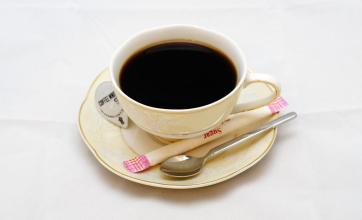Introduction of Yunnan Coffee Flavor and taste Yunnan Coffee producing area
Baoshan: Baoshan coffee planting began in the mid-1950s, the first coffee seedlings were introduced from Southeast Asia by the late patriotic overseas Chinese Mr. Liang Jinshan. The local famous Lujiangba Arabica coffee is of excellent quality. As early as the late 1950s, it was rated first class in London, England. In recent years, with the expansion of international trade, Lujiangba Arabica coffee is more famous. Europe and America, Arab countries, especially Britain, the United States, Egypt, Hong Kong and Macao merchants are regarded as coffee top-grade, products in short supply. In December 2010, the General Administration of Quality Supervision, Inspection and Quarantine of the People's Republic of China decided to implement the national geographical indication product protection for Baoshan Arabica Coffee.
Lincang: The unique geographical location and climatic conditions make Lincang become the focus of attention of many coffee enterprises, and successively establish 200 mu and 100 mu high-quality coffee seedling bases in Mengding Town and Lincang Happy Farm of Gengma Autonomous County in the city, and carry out coffee planting in Gengma, Zhenkang, Yun County, Cangyuan, Yongde and other places.
Pu 'er: Tea Country Pu' er has cultivated coffee for 150 years. At the end of the 1990s, Pu 'er City began to cultivate coffee as an advantageous backbone industry for adjusting industrial structure and increasing farmers' income. There are 54 townships (towns) in 9 counties and 1 district of Pu 'er City where coffee is planted. The west and south of Yunnan Province are located between 15° N and Tropic of Cancer. Most of the areas are 1000-2000 meters above sea level. The terrain is mainly mountainous and sloping. Fertile land, abundant sunshine, abundant rainfall, large temperature difference between day and night, unique natural conditions form the particularity of Yunnan small coffee taste-strong but not bitter, fragrant but not strong, slightly fruity.
In the south and west of Yunnan, Pu 'er, Xishuangbanna, Wenshan, Baoshan, Dehong, Lincang and other places are the distribution areas of Yunnan Arabica coffee cultivation. As of January 1, 2012, according to the comprehensive survey of Yunnan Province, the coffee planting area in Yunnan has exceeded 800,000 mu, and it is expected that the coffee bean output will exceed 55,000 tons in this period. For the future, the blueprints of state governments in Yunnan have also been drawn: Dehong plans to expand the coffee planting area from the current 100,000 mu to 200,000 mu in the next few years; Lincang will expand the existing 20,000 mu coffee forest by 10 times to 200,000 mu in the "Twelfth Five-Year Plan"; Pu 'er also plans to expand the coffee forest from 220,000 mu to 600,000 mu. Other suitable coffee planting areas such as Baoshan and Xishuangbanna are also planning to expand the planting scale.
Dehong: It has the reputation of "the hometown of Chinese coffee". As of 2011, a total of 120,900 mu of coffee planting area has been developed in the whole prefecture, accounting for 30% of the coffee planting area in China. In the next three years, the coffee planting area in Dehong Prefecture will reach 200,000 mu. The coffee planting altitude in Dehong Prefecture is above 1000 meters, of which 30,000 mu is planted on the mountainous area above 1600 meters above sea level. In addition, the coffee planted in Dehong Prefecture mainly uses organic fertilizer and organic pesticides, and the coffee produced is of high quality. It is one of the rare high-quality coffee producing places in the world.

Important Notice :
前街咖啡 FrontStreet Coffee has moved to new addredd:
FrontStreet Coffee Address: 315,Donghua East Road,GuangZhou
Tel:020 38364473
- Prev

Yemeni Coffee Flavor and Taste introduction Yemeni Fine Coffee in Yemen Coffee producing area
Ethiopia has the world's most diverse coffee planting system and a complex ancient gene pool, coupled with multiple treatments of sun, water and semi-washing, showing a complex and changeable flavor. It can be said that the taste spectrum of coffee producing areas around the world can be drunk here, reflecting Ethiopia's eclectic king flavor. Peter Giu, the promoter of the third wave of boutique coffee
- Next

Introduction to the characteristics of Bali Coffee Flavor and Taste
The overall feeling after tasting is: Balinese coffee has a bitter taste in the throat, and the taste is quite smooth and memorable. Those who like coffee can buy some freshly roasted and ground coffee and enjoy it at home. The price of a bag of 500 grams of mother beans is about NT $250, and there are many decorations made of coffee beans and coffee powder, which are quite fresh. This price is compared with the market price.
Related
- Detailed explanation of Jadeite planting Land in Panamanian Jadeite Manor introduction to the grading system of Jadeite competitive bidding, Red bid, Green bid and Rose Summer
- Story of Coffee planting in Brenka region of Costa Rica Stonehenge Manor anaerobic heavy honey treatment of flavor mouth
- What's on the barrel of Blue Mountain Coffee beans?
- Can American coffee also pull flowers? How to use hot American style to pull out a good-looking pattern?
- Can you make a cold extract with coffee beans? What is the right proportion for cold-extracted coffee formula?
- Indonesian PWN Gold Mandrine Coffee Origin Features Flavor How to Chong? Mandolin coffee is American.
- A brief introduction to the flavor characteristics of Brazilian yellow bourbon coffee beans
- What is the effect of different water quality on the flavor of cold-extracted coffee? What kind of water is best for brewing coffee?
- Why do you think of Rose Summer whenever you mention Panamanian coffee?
- Introduction to the characteristics of authentic blue mountain coffee bean producing areas? What is the CIB Coffee Authority in Jamaica?

